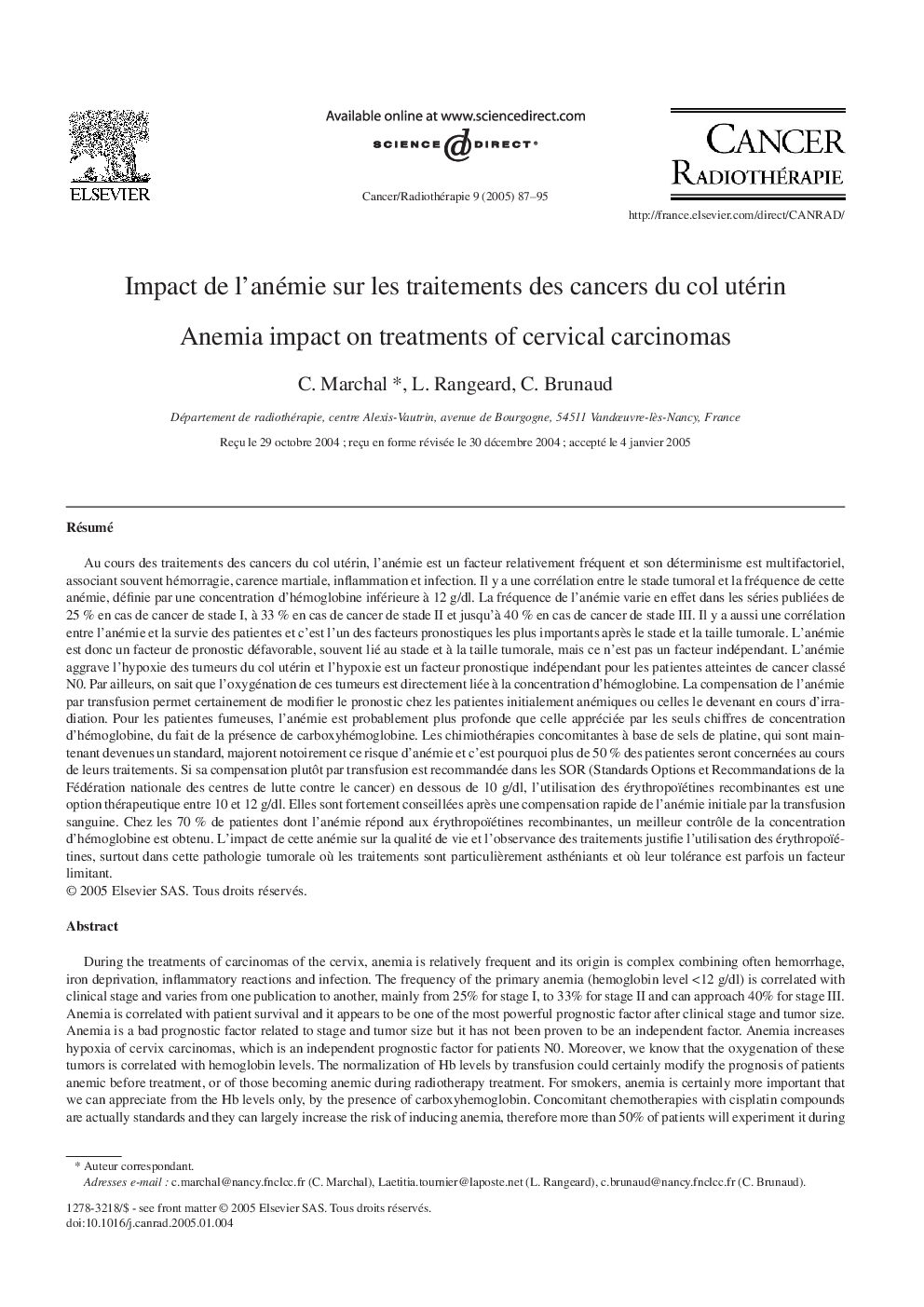| کد مقاله | کد نشریه | سال انتشار | مقاله انگلیسی | نسخه تمام متن |
|---|---|---|---|---|
| 10902984 | 1085271 | 2005 | 9 صفحه PDF | دانلود رایگان |
عنوان انگلیسی مقاله ISI
Impact de l'anémie sur les traitements des cancers du col utérin
دانلود مقاله + سفارش ترجمه
دانلود مقاله ISI انگلیسی
رایگان برای ایرانیان
کلمات کلیدی
موضوعات مرتبط
علوم زیستی و بیوفناوری
بیوشیمی، ژنتیک و زیست شناسی مولکولی
تحقیقات سرطان
پیش نمایش صفحه اول مقاله

چکیده انگلیسی
During the treatments of carcinomas of the cervix, anemia is relatively frequent and its origin is complex combining often hemorrhage, iron deprivation, inflammatory reactions and infection. The frequency of the primary anemia (hemoglobin level <12 g/dl) is correlated with clinical stage and varies from one publication to another, mainly from 25% for stage I, to 33% for stage II and can approach 40% for stage III. Anemia is correlated with patient survival and it appears to be one of the most powerful prognostic factor after clinical stage and tumor size. Anemia is a bad prognostic factor related to stage and tumor size but it has not been proven to be an independent factor. Anemia increases hypoxia of cervix carcinomas, which is an independent prognostic factor for patients N0. Moreover, we know that the oxygenation of these tumors is correlated with hemoglobin levels. The normalization of Hb levels by transfusion could certainly modify the prognosis of patients anemic before treatment, or of those becoming anemic during radiotherapy treatment. For smokers, anemia is certainly more important that we can appreciate from the Hb levels only, by the presence of carboxyhemoglobin. Concomitant chemotherapies with cisplatin compounds are actually standards and they can largely increase the risk of inducing anemia, therefore more than 50% of patients will experiment it during their different treatments. Transfusion is recommended by the SOR (Standards Options and Recommendations of the Fédération nationale des centres de lutte contre le cancer) under 10 g/dl. The use of erythropoïetin is a therapeutic option for Hb levels between 10 and 12 g/dl and strongly recommended after a Hb normalization by blood transfusion. For 70% of patients who respond to erythropoïetin, a better control of the Hb level is obtained. The impact of this anemia on quality of life and treatments compliance justifies the use of erythropoïetin, especially in cancers for which treatments induce a deep fatigue and a very bad tolerance, which could be a limiting factor.
ناشر
Database: Elsevier - ScienceDirect (ساینس دایرکت)
Journal: Cancer/Radiothérapie - Volume 9, Issue 2, March 2005, Pages 87-95
Journal: Cancer/Radiothérapie - Volume 9, Issue 2, March 2005, Pages 87-95
نویسندگان
C. Marchal, L. Rangeard, C. Brunaud,